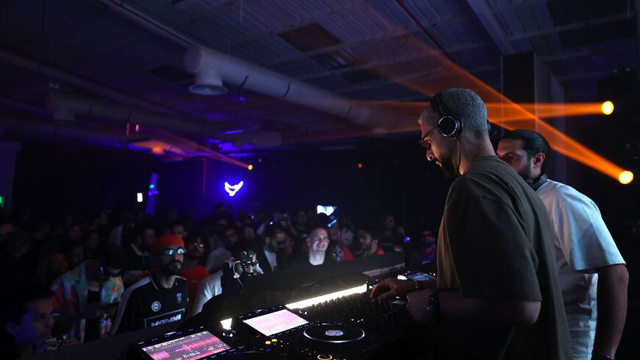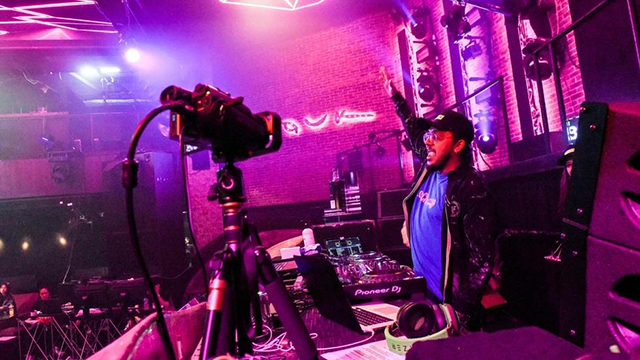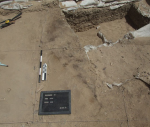You are here
Pumping ‘new black gold’, Saudi DJs sense big opportunities
By AFP - Dec 07,2022 - Last updated at Dec 07,2022

Dish Dash — Jeddah-born brothers Abbas and Hassan Ghazzawi — began performing more than 15 years ago (AFP photo)
RIYADH — Ravers sporting face paint and flashing LED sunglasses jump in time to the thudding beats of Dish Dash, a DJ act whose rise mirrors that of the Saudi music scene.
The confetti-strewn dance hall in Riyadh is packed with young men and women, most in streetwear hoodies and jeans, a few in traditional white robes and abayas.
The setting bears scant resemblance to the venues where Dish Dash — the Jeddah-born brothers Abbas and Hassan Ghazzawi — began performing more than 15 years ago.
Among their early gigs were gender-segregated weddings in which the duo would be walled off from female guests.
"They used to lock us in the room. We would stay in this room for five hours and basically DJ for the wall," Hassan recalled, laughing.
"The only way you could tell if people are enjoying it is if you hear people are screaming."
Like other facets of cultural life in conservative but fast-changing Saudi Arabia, the music scene is undergoing a revamp, emerging as a regular stop for top global pop stars from Justin Bieber to Usher and Mariah Carey.
At this past weekend's MDLBEAST Soundstorm festival, organisers said more than 600,000 fans took in sets by the likes of Bruno Mars and DJ Khaled, who dutifully documented his sampling of Saudi food and traditional sword-dancing for his 31 million Instagram followers.
Such events have helped advertise reforms championed by Crown Prince Mohammed Bin Salman, who has overseen an easing of rules that once barred cinemas and gender-mixed concerts — albeit during a ramped-up repression of political dissent.
Now, Saudi performers like Dish Dash want to take advantage of the opening-up to foster a domestic music industry that can thrive even when the spotlight veers elsewhere.
'New boom'
In between their sets at Soundstorm, Saudi acts told AFP they were encouraged by the progress so far, pointing to new labels, studios and performance venues that make it easier to build careers.
Not long ago "people used to tell us, 'Dude, you're just wasting your time. You're not doing anything,'" Hassan said.
"And now people are calling us to get [on] guest lists and stuff like that."
Nouf Sufyani, a DJ who performs under the name Cosmicat, said she only began taking a music career seriously after the first edition of Soundstorm in 2019.
Before that, she had been working as a dentist and DJing on the side, but the buzz around the event spurred her to pursue music exclusively.
Today "I'm 100 per cent able to live on music alone," she said. "And that should be a push also for anyone who wants to do music, and has the talent, but hesitates."
It is an increasingly common story in a kingdom whose youthful population of 34 million represents a vast underserved market, said Talal Albahiti, MDLBEAST's chief operating officer.
"I keep telling people this is our new black gold", he said, a reference to the oil that Saudi Arabia is primarily known for.
"This is the new boom, and it's all about these creatives and what they bring to the table... I believe the next big hit or superstar will come out of this region."
'Baby steps'
But challenges remain, notably a still-developing network of recording studios that until five or six years ago "were mainly focused on classical Arabic music" and "pretty much neglected all other genres and all other types of artists", Albahiti said.
The process of setting up rules governing music rights, licensing and royalties is also "in its infancy still", he added.
But Hassan, of Dish Dash, said he believed such a scene would ultimately be viable, calling it the logical "next step".
The changes to date have already captured the attention of artists elsewhere in the region, including from bigger markets like Egypt.
Disco Misr, an Egyptian DJ trio known for up-tempo remixes of Arabic pop classics, first played Saudi Arabia in 2019 and returned to perform in September at the Azimuth music festival in the northern desert city of Al Ula.
That event, more intimate than Soundstorm, attracted around 1,000 fans to a stage nestled between sandstone mountains for two nights of dusk-to-dawn sets.
"Their baby steps are surprising. I cannot call them baby steps. It's huge... I can only compare what's happening in Saudi Arabia with Tomorrowland," Disco Misr member Schady Wasfy said, referring to the Belgian electronic dance music festival.
"I cannot compare [it] with anything happening in the Arab region. I'm actually surprised — I'm really surprised. And I'm hoping to see more."
Related Articles
NEW YORK — Taylor Swift cleaned up at Tuesday's MTV Video Music Awards, as Shakira accepted the night's prestigious Video Vanguard prize wit
SINGAPORE — Strobe lights flash across a near-empty dance floor, as a DJ live-streams thumping electronic music from a Singapore nightclub t
STOCKHOLM — Sweden’s king on Friday handed royal orders to the members of iconic pop group ABBA, marking the first time in 50 years the hono


















